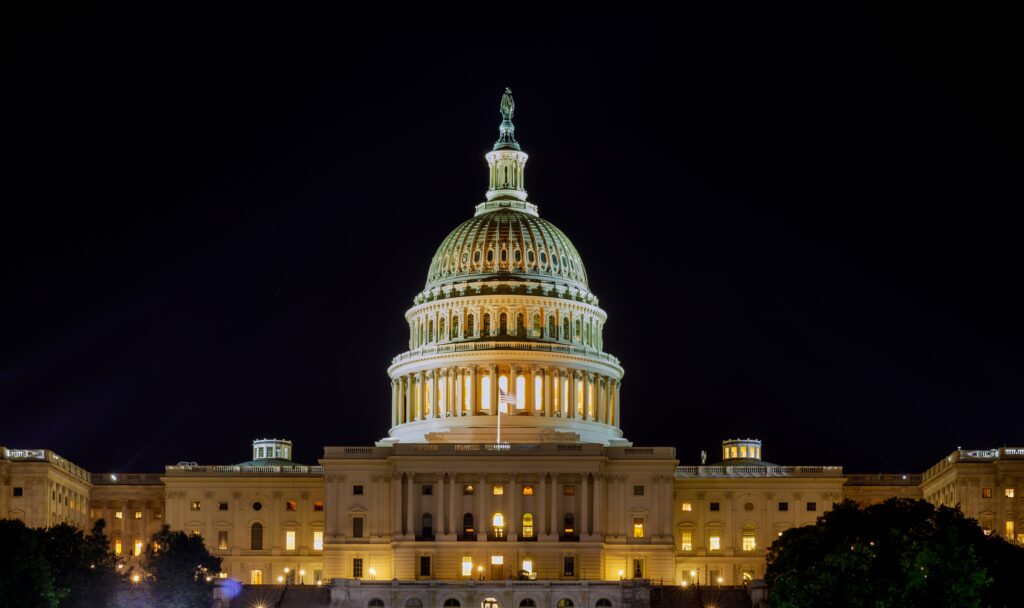The current US administration has shown a keen interest in reshaping the landscape of higher education, as we’ve discussed before. This has previously been targeted, with universities dealing one at a time with the demands of the administration, or indirect, with many universities dealing with funding issues due to cuts to National Institute of Health research grants. Now, however, the administration has announced a sweeping new plan to reshape colleges in the US; currently aimed at nine colleges, but with clear plans to extend to most every university in the country. In this article, we’re going to look at what changes are being proposed by government, how these could impact you, and whether or not this is something you need to worry about for your admissions journey. Let’s jump right in!
What is the Compact for Academic Excellence?
This is a list of points which the Trump administration is asking colleges to agree to voluntarily, which are aligned with the administration’s policy priorities. It promises increased access to government grants for universities which comply, though the exact mechanics of how this would work are unspecified.
This is a shift from earlier attempts by the administration, which mostly consisted of slashing funding first and then negotiating. These cuts were often challenged in court; several of these cases are still ongoing. This latest effort seems to be an attempt to use incentives; a softer approach overall.
Nine colleges were sent this compact, including Brown, UPenn, Vanderbilt, and UT Austin; all were given until November 22 to give feedback and respond. It is unclear why these universities specifically were chosen. These universities have been noncommittal in their feedback for the most part. Other voices in education, however, tended to speak against the compact, saying it was an attempt to revoke the autonomy and academic freedom of universities.
Individual faculty members were often the most strident in their opposition, though university presidents at other colleges also expressed some concerns. It remains to be seen how much of an impact this proposal will have, as none of the colleges have yet signed on nor rejected it.
What are the Potential Impacts of this Compact?
This remains to be seen, as the number of colleges impacted, and what reactions states and universities will have, is as of yet uncertain. In this section then, we’ll go through the various points of the compact, discuss what each could mean, and how each could impact you if implemented.
Ban Considerations of Race or Sex in Hiring or Admissions
The Supreme Court already ruled that colleges couldn’t consider race in admissions, making parts of this redundant. The ban on hiring is another matter, but significantly less likely to impact high school students. The most impactful part of this would be a ban on considerations of gender in admissions.
This would most likely result in a significant increase in the number of women admitted to some top colleges (though not all). As we covered in a previous article on gender in admissions, many top colleges slightly advantage men in admissions, though some do advantage women. For schools like Brown specifically, this could have a major demographic impact.
Freeze Tuition for a Five Year Period
This is theoretically a very good thing for students, but is what politicians consider an unfunded mandate; tuition increases reflect an increased need for money by universities, which is generally caused by a lack of state and federal funds. Unless significant new funding is included in this compact, it is unclear if universities will be able to do this.
That said, we hope the funding does appear. Many families are struggling to pay the increasing costs of college tuition, and a freeze on increases would provide a small measure of relief.
Limit International Enrollment
The compact states that colleges should limit the number of international students enrolled to a mere 15% of their student population. Now, the colleges which have currently been sent this compact are already under this limit (UT Austin, for example, sharply limits out of state enrollments already). Other schools, however, are not, especially those which rely heavily on international students for tuition dollars.
UIUC, for example, has 19% of its student body made up of international students (though many of these are masters and PhD students). These limits may make college applications even more competitive for international applicants, who are already facing significantly more competition than their domestic counterparts. It is unlikely to change the level of competitiveness significantly for domestic students.
Require Standardized Tests
A major part of the compact is requiring universities to require standardized test scores (from the SAT or ACT), when making admissions decisions. Now, some top universities are already moving to require these tests; others are remaining resolutely test-optional. If this goes through, then it will simply increase the importance of standardized test scores for applicants.
Now, standardized tests are already important, but test optional colleges do currently provide an outlet for students who struggle with these tests. If this goes through, then all students will need to devote significantly more effort to preparing for these tests. Check out our test prep services to learn more about how we can help with that.
End Grade Inflation
Grade inflation is an issue at many colleges (and many high schools). It is uncertain how exactly colleges would tamp down on it however, or what impacts would result if they did. Some colleges may look into this; this is likely to impact differently at different colleges however, as no real metrics are provided for how this should unfold.
Ideological Concerns
Finally, there are several points on ensuring viewpoint diversity, making sure faculty members don’t take political stances on behalf of the university, and committing to institutional neutrality. These are ill defined as terms, and it is uncertain what actual policies universities would need to institute to ensure compliance with them.
These are also the items causing the most concern from university officials, who are generally classifying this as improper government overreach into their affairs. Whether or not it is allowed, and the exact details of what the administration wants are likely to be revealed going forward. Currently, however, these are the policies least likely to impact students who are currently seeking to apply to these schools.
New Policies and You
So should you be worried about these new governmental policies, and will they impact admissions this fall? As always, it is impossible to say exactly what the future holds, but things seem unlikely to be an immediate concern for students.
First, only nine schools have been sent this compact thus far, and they don’t have to respond until after the early decision/action deadline passes. This means that these changes are unlikely to be implemented for the early round, and thus probably not implemented for the regular decision round either, simply for the sake of fairness.
Now, some schools may experiment with these policies, as an attempt to win points with the administration, but we’re very late in the game to be changing admissions policies; just from a logistical standpoint, things are going to be well set already for this year. It is likely changes made this year will be lip-service or window dressing, unlikely to have a major impact on admissions policies.
Going forward, however, we anticipate some or all of this to be challenged, though the results of that are even more uncertain. This is a situation you should monitor, yes, but not something to be immediately concerned about. Students who will be applying in future years, however, may indeed be impacted by some form of this.
Final Thoughts
It can often worry students and parents when they see universities in the news, or hear reports of how an administration is fighting with university officials. University admissions are a stressful time already, and this simply adds to that, a new layer of complexity students didn’t think they needed to be aware of. We hope this article showed you what exactly this latest twist entails, and how it might impact your own collegiate ambitions.
Of course, the college landscape is always shifting, especially when the government seeks to take an active hand in it. We work hard to stay abreast of the latest developments, and to make sure our students always receive the best possible strategic advice. If you are looking for that sort of advice on your own admissions journey, then schedule a free consultation today. We have a deep experience advising students in all situations, and are always happy to hear from you.








